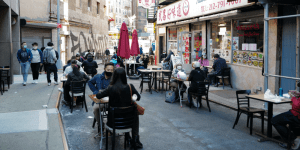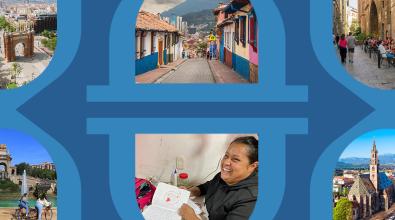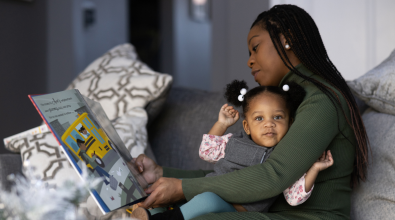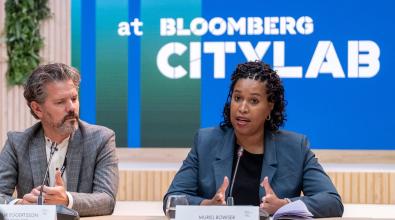A Mayors Challenge like no other

By James Anderson, Bloomberg Philanthropies Government Innovation program lead
The past year has been like no other, placing mayors at the frontline of compounding crises the likes of which we’ve never seen before. Yet, as the surging pandemic, a plummeting economy, and cries for social justice tested them—and their residents—again and again and again, city leaders did much more than stand vigil. They fought back in ways we never could have imagined just 10 months ago.
Mayors responded by innovating like their residents’ lives and livelihoods depended on it—because, of course, they did. In the decade that Bloomberg Philanthropies has been investing in local governments’ capacities to solve problems in new ways, we’ve never seen so much innovation in such a concentrated period of time.
While many national leaders fumbled in their responses to COVID-19, many mayors rallied their communities to quickly stand up creative solutions to problems they’d never fathomed just days before: pop-up delivery services to get food and medicines to isolated seniors; emergency-aid programs to keep businesses afloat and unemployed renters in their homes; governance reforms to move in-person services online and enable inclusive public participation despite lockdowns; and so much more.
In my home of New York City, as in so many other places, thousands of parking spaces were given over to struggling restaurants so they could spread tables out into the streets for socially distant dining. More than 10,000 so-called “streeteries” did more than pump new life into a city nearly taken to its knees by COVID-19’s first wave. They also enabled waiters, cooks, and other restaurant workers to earn paychecks again. Before the pandemic, the idea of using so much street parking this way might have been suffocated by regulations if a political backlash didn’t kill it first. Today, streeteries are a popular new feature of our city streets—not just in New York, but in cities around the world.
It’s because of local innovations like these that Bloomberg Philanthropies is bringing back the Mayors Challenge for a fifth run. This is our first global competition, open to cities worldwide with populations of 100,000 or more. First, we will identify and elevate the 50 most important urban innovations to emerge from the chaos and trauma of 2020. Then, we will give 15 grand-prize winner cities $1 million each to strengthen, scale, and replicate the ideas most likely to produce global impact.
The need to reinforce the boldest innovations is great—because continued progress is far from guaranteed. We know from our work with local governments worldwide how hard it is for mayors to maintain momentum for innovation. As the urgency of a new crisis fades and fatigue sets in, the usual forces that resist change in the public sector have a way of creeping back into the picture. Before long, I suspect, the car drivers of New York will want their parking spots back.
To meet city leaders where they are, this year’s Mayors Challenge is a little different from our previous competitions. Notably, cities will not need to start from scratch with a totally new idea. Rather, this year’s competition is open to all bold ideas that came out of the pandemic period, whether already launched or still just an idea on a napkin. We’re also focused on finding the ideas that address the primary challenges cities face coming out of 2020: improving public health and resident wellbeing, driving inclusive economic recovery, tackling climate change, and ensuring justice for all. As always, every city hall that competes will pick up new skills or strengthen their original concepts.
While we don’t yet know what ideas mayors will submit, we are confident that it’s their ingenuity and leadership that will propel humanity forward out of the pandemic. Finding and accelerating those ideas that really will help us build back better is perhaps the best way to continue making real progress against the challenges of the past year and look forward to creating stronger cities that work better for all their people.


